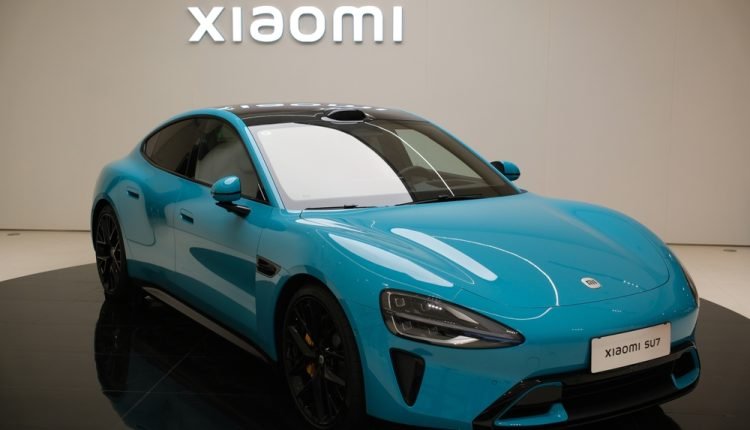
Xiaomi’s Electric SUV Set to Rival Tesla Model Y: A New Contender with a Different Flavor
After making waves in the global smartphone industry, Chinese tech giant Xiaomi is now extending its reach into the electric vehicle (EV) market. The company is gearing up to introduce an SUV designed to go head-to-head with Tesla’s Model Y, signaling a bold new chapter in Xiaomi’s growth story.
This move marks a significant leap for Xiaomi as it aims to position itself as a major player in the automotive industry. Xiaomi’s entry into the EV space began back in 2021 when CEO Lei Jun announced their ambitious plans to produce electric vehicles. Since then, the company has been meticulously crafting its SUV, drawing comparisons with Tesla’s popular Model Y.
From Vision to Reality – Xiaomi’s EV Journey
Xiaomi first focused on the production of its electric sedan, the SU7, setting an ambitious target of 100,000 units for this year. With the SU7 now in production, the company’s attention has shifted to developing the SUV, with a planned launch in late 2025 or early 2026. This timing aligns perfectly with the completion of the second phase of Xiaomi’s new assembly plant in Beijing, positioning the company for mass production.
While details of the SUV remain under wraps, insiders hint that it will build upon the strengths of the SU7 while addressing any areas for improvement. Xiaomi’s strategy also heavily emphasizes affordability—something the company is known for in its smartphone segment and now aims to replicate in the EV market.
For businesses like Carkit, this development could be a game-changer, potentially opening up a new range of affordable electric vehicles to offer to customers. With the right marketing and sales strategy, this could drive significant interest among price-sensitive buyers looking for a reliable EV alternative.
Competitive Pricing: Xiaomi’s Secret Weapon
Xiaomi’s pricing strategy could be a serious disruptor in the EV market. The SU7 sedan is priced at RMB 215,900 (PKR 8,338,632), and the upcoming SUV is expected to be even more budget-friendly, rumored to start at around RMB 150,000 (PKR 5,793,398). This competitive pricing could make electric vehicles accessible to a broader audience, much like Xiaomi’s smartphones did in the past.
With an annual production capacity of 300,000 vehicles at its Beijing plant, Xiaomi is positioning itself as a formidable player in the fast-growing EV industry. The company’s entry into this market highlights its long-term vision and innovative mindset, promising exciting developments ahead.
For dealers like Carkit, the arrival of Xiaomi’s SUV could mean new opportunities to expand their sales portfolio and attract a more diverse range of customers. As Xiaomi continues to innovate, the industry—and consumers—stand to benefit from this fresh competition.
What are your thoughts on Xiaomi’s upcoming electric SUV? Let us know in the comments below!



